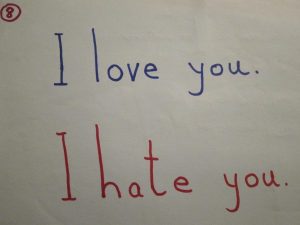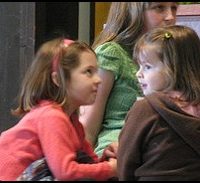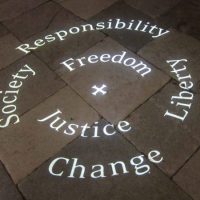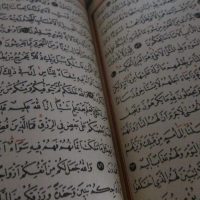Our words carry with them the power to make something real.
Chris Coli, Pleasanton, California USA
God speaks the universe into creation.
Words of kindness create goodness; words of cruelty create hurt.
Our words matter.
Liturgy and Language resources: Jump to…
Creative and Refreshing liturgy for today’s church
Liberated Liturgy
Academic reflections – thoughts on liturgy
Consideration of inclusive language in liturgy
- Pamela Payne Allen, ‘Taking the next step in Inclusive Language’
- Tasmania, Inclusive language — a definition
Carrying on the conversation…
Creative and Refreshing liturgy for today’s church
How does the progressive twenty-first century minister or worship leader find inspiring authentic, grounded and progressive words for worship?
Liturgy is like a stream that came from before us and will continue after us.
Nadia Bolz-Weber, House for All Sinners and All Saints, Denver, Colorado USA (speaking at St Paul's Cathedral London UK, 28 August 2014
A plethora of liturgical resources both printed and on the internet exists, yet resources that are intentionally inclusive, open-minded and of the Progressive Christian perspective are not always easy to find. Worship Words attempts to network writers and users across time and space and provide a place to share progressive prayers, songs and liturgies with others.
Thoughtful, inspiring and modern services for the rituals of faith and significant days in the calendar year are being written by religious practitioners every day. All of us who write for worship are part of ‘the modern liturgical movement’ which is usually considered to stretch from 1600 to 2000. Let’s extend that movement into the 21st century and around the globe!
Accept the invitation to both write and network liturgical and worship resources nestled in your files and tucked away in books. Let’s share what we have written with one another.
Liberated Liturgy
When our liturgy is truly liberated it will no longer bend to the tyranny of tradition nor the rule of church law. Neither will it bend to the tyranny of change-for-change’s-sake nor weaken due to a perceived ‘need’ for change. Liberated Liturgy will reflect a freedom to use authentic, grounded and progressive words whether they are traditional or new-age, progressive or retro. Liberated Liturgy will soar unfettered and will stand solid on a foundation of deep roots.
Who sets the rules? the bounds? the limits?
The one who speaks truth into being. The one who expresses the reality of mystery and the comfort of ambiguity. The one who touches the divine with words spoken and silent.
Thoughts on liturgy (for you academics out there)
From Liturgical Studies at Notre Dame University, Indiana USA
“Liturgical theology reflects upon the meanings which believers, past and present, have associated with their worship traditions. Thus it studies the whole phenomenon of Christian worship, in both its historical manifestations and its contemporary realisations, attempting to articulate its theological content. In so doing, liturgical theology attends to what Christians believe to be happening in their common prayer and sacraments (sacramental theology) and to the ways in which the worship tradition itself interacts within the broader language of Christian faith and practice (historical and systematic theology).
“Ritual studies rest on the premise that liturgy is an event, an act posited by faithful believers. Consequently, ritual studies examine the production of human meaning in liturgical celebration, while attending to the social and cultural contexts in which worship takes place. If liturgical history stresses the diachronic development of rites, ritual studies emphasize the synchronic dimension of worship.
“The employment of pertinent research in the human sciences (e.g., anthropology, sociology, psychology) allows for study of ritual engagement in personal and social life—a substratum for a detailed perusal of the liturgical act as a phenomenon in which the various “languages” of worship conspire in ritual enactment. Temporal and spatial languages are treated as the symbolic backdrop for worship. Ritual studies also attend to other ritual languages, e.g., the acoustic, verbal (linguistic and mythic), gestural, aesthetic, and symbolic, as well as their interaction, as significant systems of the communication of meaning.”
— Liturgical Studies at Notre Dame University, Indiana USA
From Joseph Ratzinger’s (Pope Benedict XVI)
An unlikely ally for Progressive Christian adherents, Joseph Ratzinger’s (Pope Benedict XVI) expands liturgy beyond communion alone to encompass “a fundamental path to encountering God.” (The Spirit of the Liturgy, St Ignatius Press) This path, Ratzinger boldly claims, extends out into a greater context understood as three concentric circles:
”First,
Consideration of inclusive language in worship
Taking the next step in Inclusive Language — Pamela Payne Allen, USA
Pamela Payne Allen wrote the article, “Taking the next step in Inclusive Language” for The Christian Century in 1986. This was in the same period that the hymn writers, Brian Wren and Frank Birch Brown, were introducing our congregations to fully inclusive lyrics. Thirty years later, with the majority of our churches continuing to use male-dominated language in worship, a fresh read of Allen’s article can raise the persistent and critical ‘cry in the wilderness’ as she provides important concerns and suggestions for worship leaders committed to inclusive language in worship.
Allen’s article opens with words that could be written today:
‘We like to think that we’ve made much progress in the pilgrimage toward inclusiveness. Liturgies and hymns are now frequently shorn of generic male references to humankind, and imperialistic stances toward mission have been discarded.’
‘Though these are positive steps, it would be premature to conclude that we have achieved inclusiveness. True inclusiveness means more than changing words; it means exploring images of God based upon the experience of oppressed peoples. In our context, that means exploring the rich possibilities of feminine imagery, as well as drawing on liturgy and song written by, and in response to, black Americans and peoples of the Third World. For the sake of justice, and for an accurate representation of God’s self-giving, such imagery is essential.’ Read the full article.
Inclusive language — a definition from Tasmania
‘Inclusive language is language that is free from words, phrases or tones that reflect prejudiced, stereotyped or discriminatory views of particular people or groups. It is also language that doesn’t deliberately or inadvertently exclude people from being seen as part of a group. Inclusive language is sometimes called non-discriminatory language.’
From ‘Guidelines for Inclusive Language‘ published by the Department of Education in Tasmania, Australia.
Read more about inclusive language here.




